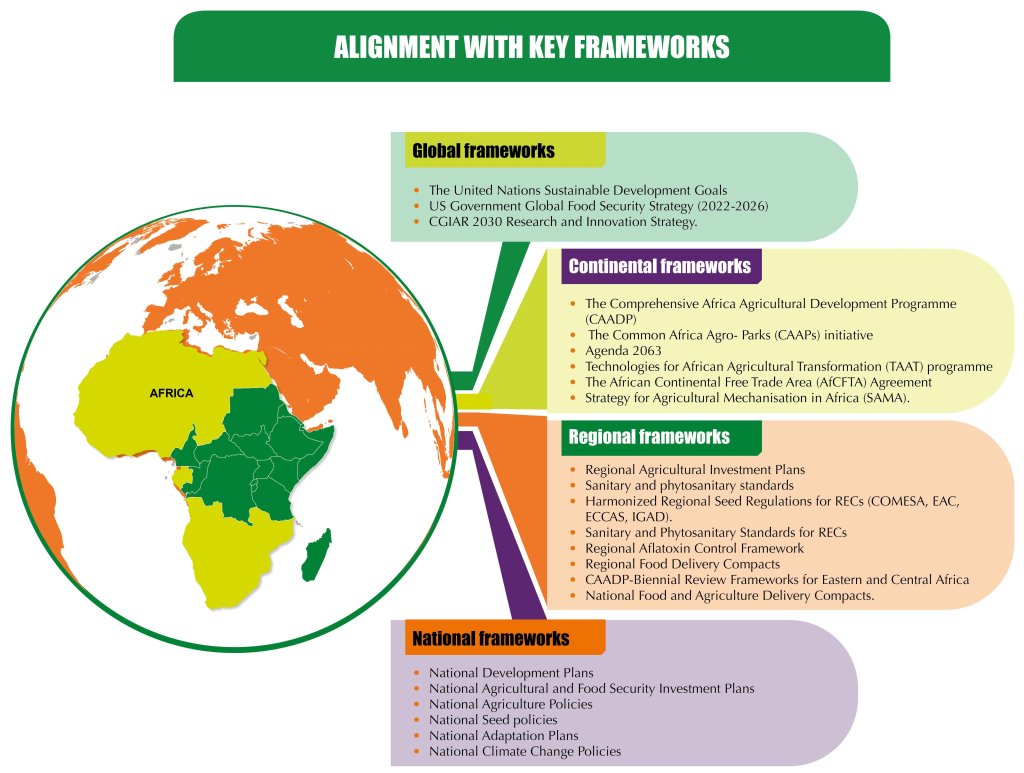- Our Work
- Our Story
- Our Strategy
ASARECA’s work is based on priorities identified by the National Agricultural Research Systems (NARS) of its Member States. This is achieved through consultations organised by ASARECA Secretariat, the ASARECA Council of Patron Ministers, the Committee of Directors General of the National Agricultural Research Institutes (NARIs) supported by their subject matter specialists and other national AR4D experts and multi-stakeholders. The 15 Member States are: Burundi, Cameroun, Central African Republic, Democratic Republic of Congo, Eritrea, Ethiopia, Federal Republic of Somalia, Kenya, Madagascar, Republic of Congo, Rwanda, South Sudan, Sudan, Tanzania, and Uganda.
ASARECA Stakeholders and clients:
ASARECA works with a wide range of stakeholders from the National, Regional, Continental and Global Stakeholders, whose interests are at the core of our work. The stakeholders and clients include:
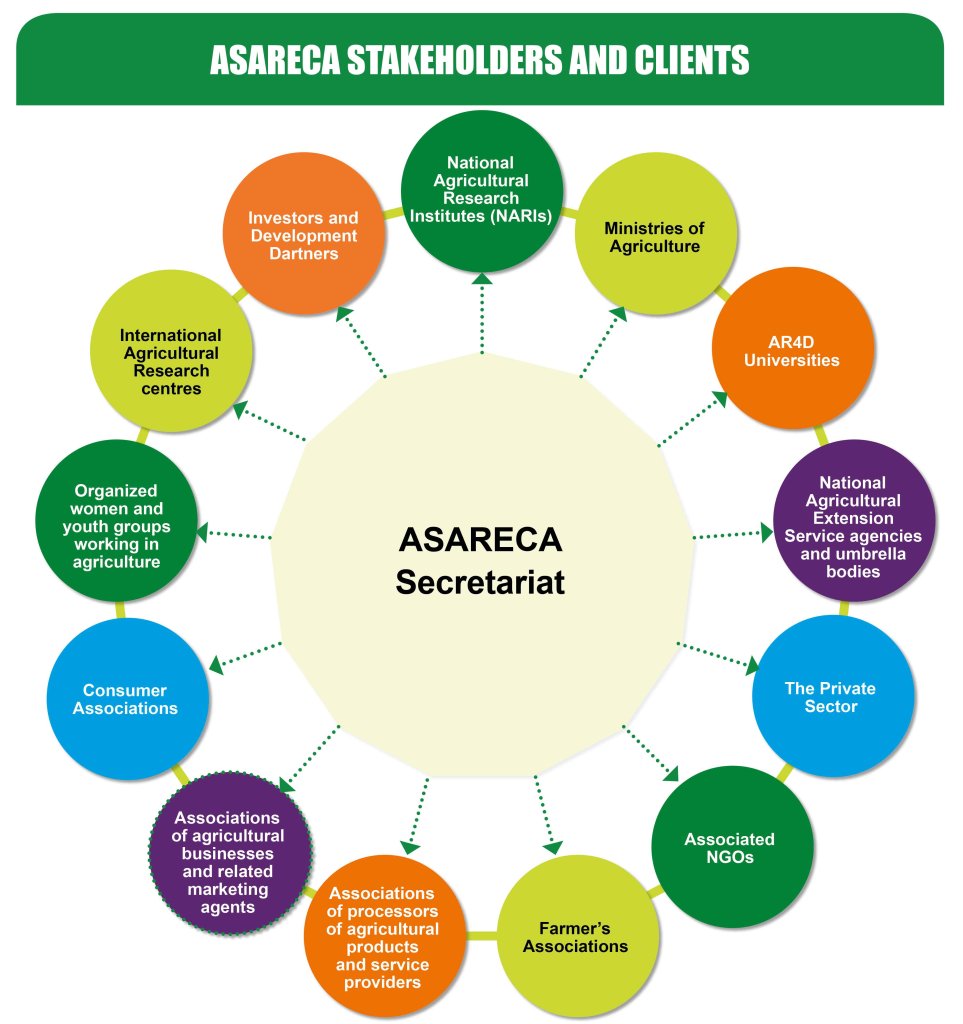
Approach
ASARECA works with multi-stakeholders towards achieving its mandate through the following approaches and mechanisms:
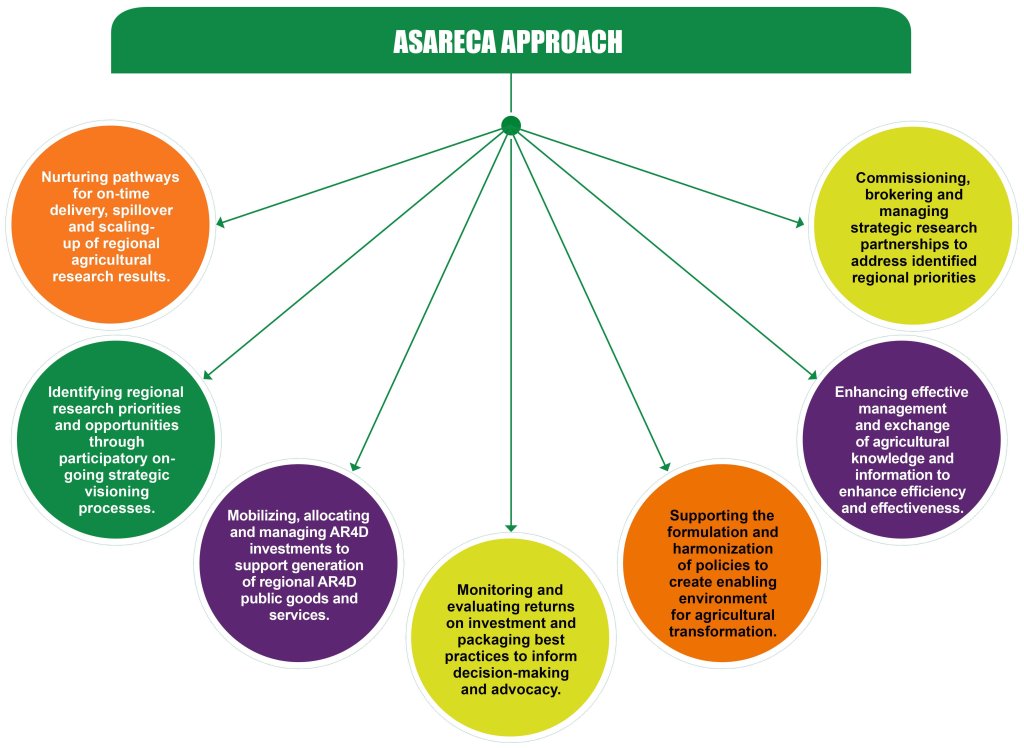
Context and background to ASARECA work
Smallholder farmers in Eastern and Central Africa face similar challenges. Many use poor quality inputs such as seeds and farm implements. Their farms are often under the threat of attack by menacing pests, diseases and weeds. This situation is aggravated by variable weather and declining natural resource base; lack of access to input and output markets, and limiting trade policies. As a result, farmers get poor yields from their crops and animals leading to high levels of poverty.
Although all these cannot be tackled at national level because the national systems have inadequate capacities to manage these challenges comprehensively. ASARECA is addressing these challenges in a regionally coordinated manner in collaboration with its stakeholders, clients and partners.
ASARECA Achievements
Following 30 years of coordinating joint initiatives with its diverse stakeholders and partners, ASARECA has scored the following achievements:
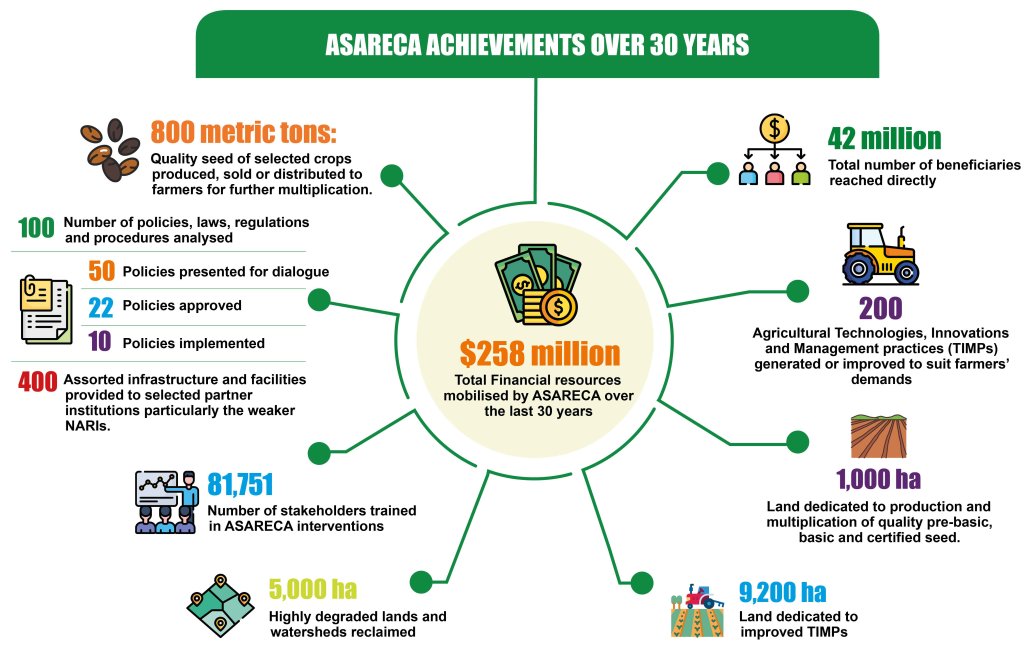
ASARECA was established in 1994 by 10 Member States namely: Republic of Burundi, Democratic Republic of Congo, State of Eritrea, Federal Democratic Republic of Ethiopia, Republic of Kenya, Republic of Madagascar, Republic of Rwanda, Republic of the Sudan, United Republic of Tanzania, and the Republic of Uganda represented by their National Agricultural Research Institutes (NARIs). The Republic of South Sudan joined the Association in 2011, Republic of the Congo joined in 2019, while the Republic of Cameroon, Central African Republic, and the Federal Republic of Somalia were formally admitted to the Association in 2023.
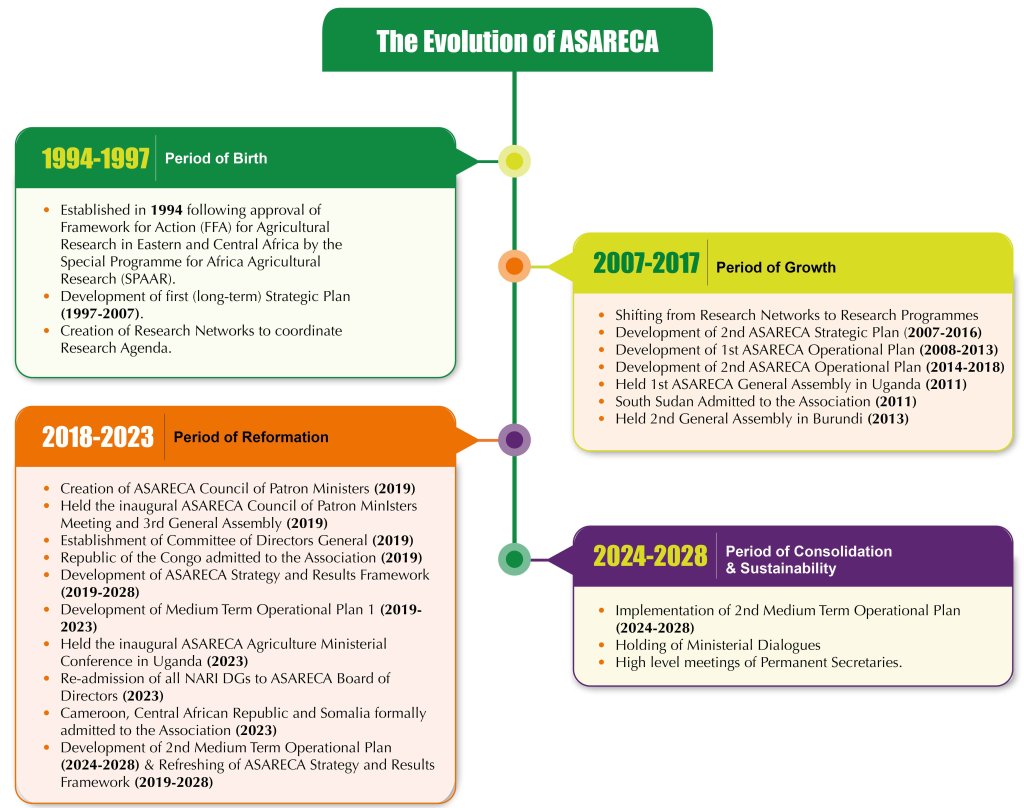
Why ASARECA was established by the NARS
The founders established ASARECA to complement national efforts through collective action and cost-effective utilization of resources to improve the delivery and impact of scientific knowledge, policy options and technologies. The stakeholders therefore established ASARECA to undertake the following Core Functions, which have since evolved based on changing needs and priorities:
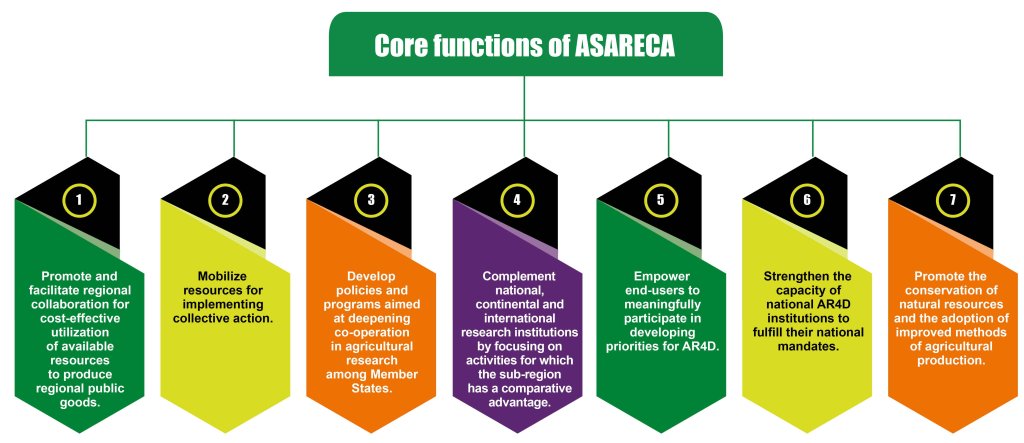
ASARECA’s current direction is enshrined in its ten-year ASARECA Strategy and Results Framework (A-SRF: 2019-2028). The Strategy is operationalized through two Medium Term Operational Plans (MTOP I (2019- 2023) and MTOP 2 (2024-2028), each covering a period of five years. Through the Strategies and MTOPs, ASARECA is mandated to deliver specific priority inclusive development outcomes in the sub-region by supporting the attainment of economies of scale in the conduct of priority regional research and significantly reducing duplication and misalignment of efforts and resources. ASARECA is therefore required to act as:
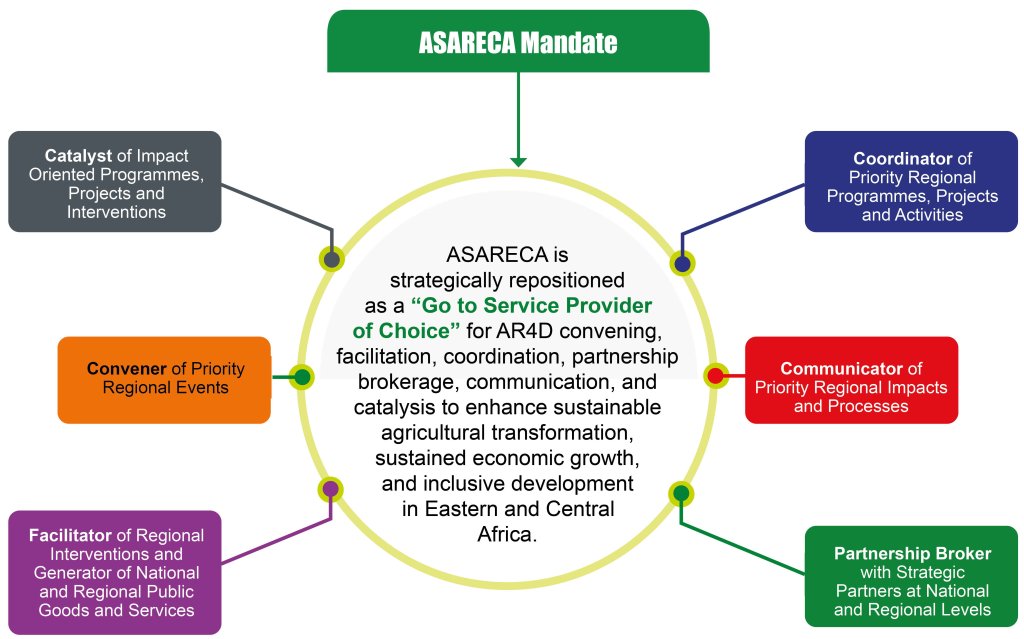
Thematic Interventions
ASARECA has committed to focus on the following four thematic areas and crosscutting issues that are well aligned to the major ongoing regional and continental initiatives.
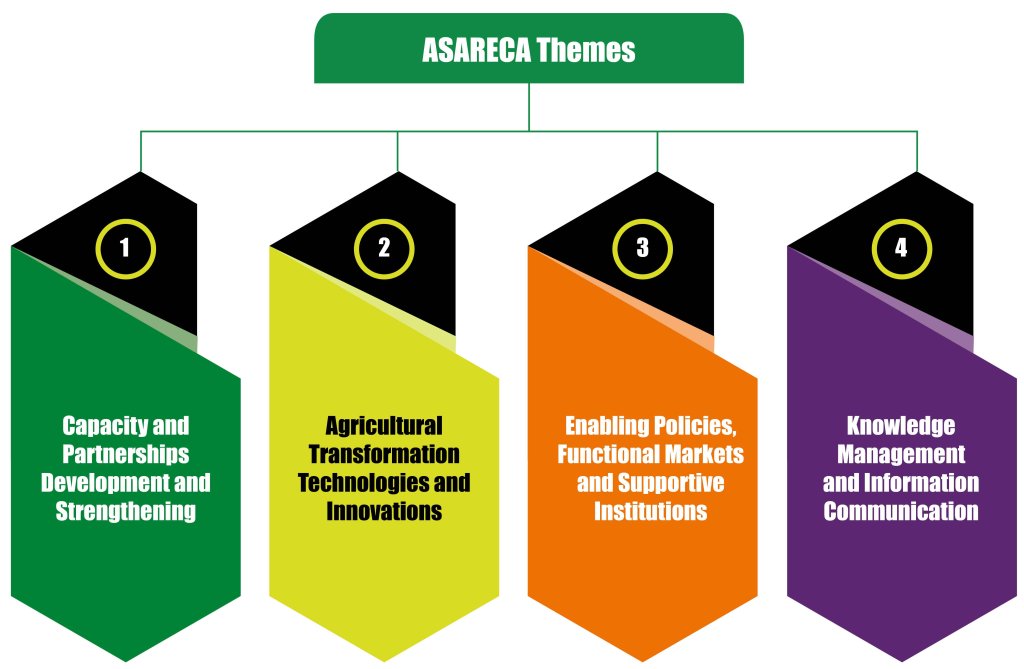
In implementing its mandate, ASARECA is aligned to the major global, continental, regional, and national frameworks that include:
